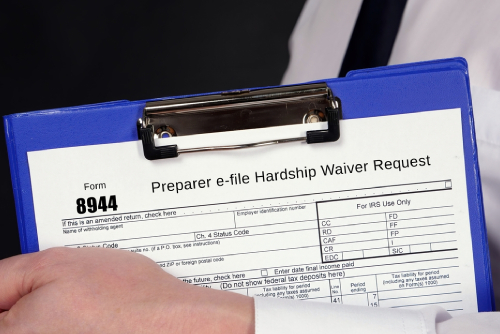 Hardship waivers provide relief for individuals who face inadmissibility by demonstrating that their removal would cause extreme hardship to a U.S. citizen or lawful permanent resident family member. At Immigration Psychology, we offer forensic psychological evaluations that identify hardships and how the affect the qualifying relatives. The following is information to help you understand the process, cost, and timeline of extreme hardship evaluations or waivers evaluations.
Hardship waivers provide relief for individuals who face inadmissibility by demonstrating that their removal would cause extreme hardship to a U.S. citizen or lawful permanent resident family member. At Immigration Psychology, we offer forensic psychological evaluations that identify hardships and how the affect the qualifying relatives. The following is information to help you understand the process, cost, and timeline of extreme hardship evaluations or waivers evaluations.
What Is a Hardship Waiver?
A hardship waiver is also known as a extreme hardship waiver. It is a legal option available to certain aliens who are seeking admission or are currently in the United States but have been found inadmissible due to specific grounds, such as unlawful presence or certain criminal convictions. In these cases, the applicant must demonstrate that their inadmissibility would result in extreme hardship to their U.S. citizen or lawful permanent resident spouse, parent, or child.
Extreme hardship includes severe emotional, financial, medical, or psychological consequences for the qualifying relative. A thorough immigration evaluation in Florida, Texas, North Carolina and other states can provide critical evidence of the emotional or mental strain the family member would experience if the waiver is not granted. More specifically, the psychological evaluation identifies the hardships and how they affect the qualifying relative.
The Role of Psychological Evaluations in Hardship Waiver Applications
Psychological evaluations are a key part of many hardship waiver applications, particularly when the claim of hardship involves emotional or psychological distress. A comprehensive immigration psychological evaluation or hardship evaluation conducted by a qualified immigration psychologist can bring insight into the impact of separation or removal on the qualifying family member.
These evaluations often include a detailed assessment of the family’s current emotional state and the potential consequences of separation, such as depression, anxiety, or trauma. To learn more about our team of professionals, visit our providers page.
Cost of a Hardship Waiver
The cost of filing for a hardship waiver can vary based on several factors, including attorney fees, application fees, and the cost of supporting evaluations, such as psychological assessments.
The cost of a psychologist for immigration evaluations also varies by location and provider. At Immigration Psychology, we offer transparent pricing for our services and collaborate with clients to ensure that the psychological evaluation is completed in a professional and timely manner. The exact cost of the immigration psychological evaluation is established before the work is initiated.
Timeline for Hardship Waiver Psychological evaluation.
The timeline for hardship waivers can vary significantly depending on the type of waiver, the complexity of the case, and the processing times at U.S. Citizenship and Immigration Services (USCIS).
To expedite the process, applicants should ensure that all supporting documentation, including the immigration psychological evaluation, is submitted promptly and in full. The evaluation itself usually takes a two to three weeks to complete, including time for interviews, assessments, and the preparation of the final report.
Keeping open communication with providers like Immigration Psychology is essential to avoid unnecessary delays.
How to Start the Hardship Waiver Psychological Evaluation
Schedule a consultation with an immigration psychologist at your earliest convenience. A detailed psychological evaluation will take two to three weeks to complete, although at times is possible to implement an expedited process.
At Immigration Psychology, we provide evaluations tailored to each case’s unique needs.
Contact us today to schedule an evaluation or learn more about how our Immigration Psychology services can assist in your immigration case.
Benefits of Psychological Evaluations in Waiver Cases
Including a psychological evaluation can identify all hardships and their impact of the qualifying relatives. This evaluation also provides a comprehensive assessment of the emotional or psychological impact of the removal or inadmissibility. It can highlight specific mental health conditions or vulnerabilities that may not be evident without a thorough evaluation.
For instance, if a qualifying family member suffers from depression, anxiety, or post-traumatic stress disorder (PTSD), the evaluation can document how the separation would exacerbate these conditions, which speaks to the extreme hardship.
Strengthen Your Case with Professional Support
At Immigration Psychology, we understand the importance of hardship waivers for individuals facing inadmissibility. Combining legal support with our forensic psychological evaluations can bring greater insight into extreme hardships and mental health issues. Acting quickly to gather all supporting evidence, including psychological evaluations, is crucial. To learn more or start the process, contact us today.